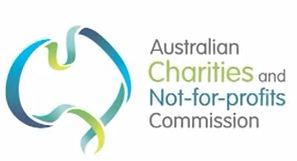The group also discussed evaluating the effectiveness of a regulator’s compliance activity.
The conference was convened by The Australian Charities and Not-for-profits Commission (ACNC) as part of regular community of practice communications by charity regulators. It is the second time this year the ACNC has convened the meeting of more than 20 participants representing agencies in Australia, New Zealand, Singapore, Canada, Scotland, England and Wales, as well as the UK tax authority.
ACNC Assistant Commissioner Murray Baird said the meeting provided an opportunity to discuss, understand and develop ‘best practice’ for regulating the charitable sector by drawing on charity regulators and tax authorities with many years of experience.
Baird said working with charities operating overseas was a matter all conference participants were keen to discuss.
“All international charity regulators play a role in helping their local charities operating overseas to meet their respective country’s legislation,” says Baird.
“This may range from working with experts to develop guidance, alerting charities to the dangers they face, ensuring charities can account for where their money is spent – particularly if it is sent to conflict zones – and being careful to ensure warnings to charities do not deter the public from supporting worthwhile causes.
“In Australia’s case, the recently released Curtin University Charities 2013 Report revealed 17 per cent of registered charities have some overseas operations or activities. To support charities, the ACNC has recently published information to keep these charities informed of their obligations, as well as periodically issuing ‘safe giving’ tips and advice to the public.”
On the matter of reporting obligations, Baird said all the participating charity regulators were responsible for maintaining an accurate register and ensuring charities file their annual reports on time.
“The ACNC’s most recent lodgement rates show that 85–90 per cent of Australian charities have lodged their 2013 Annual Information Statements so far. For those who have not, the ACNC has announced that it will impose financial penalties if charities have deliberately decided not to file. Every charity which is more than six months late will have a statement of non- compliance published on the register, starting from early November 2014. Registration will be revoked if charities have not lodged a return for two consecutive years,” says Baird.
ACNC Director of Compliance and Reporting and Chair of the international conference, Mr Stewart Donaldson, said each country took a different approach on the matter of non-filing of annual statements.
“In England and Wales it is a criminal offence not to file an annual return. Their regulator has a rolling programme of regional press releases that focus on a county’s local charity lodgement performance, drawing journalists’ attention to the charities in their area that have not complied,” says Donaldson.
“This differs from Canada, where charities with returns that are more than four months overdue may have their registration revoked and they must pay a $500 non-filing penalty when they apply for re-registration.
“In New Zealand, no penalties are charged or compliance statements are published, but a charity’s registration is likely to be revoked if it has not lodged a return for two consecutive years.”
The group also discussed diverse measures available to establish if a regulator is efficient in its compliance work or whether it is causing an unnecessary burden on charities subject to compliance activities.
The ACNC currently focuses on the timeliness and quality aspects of its work. Other regulators surveyed charities at the end of compliance activities, tracked the volume of referrals made to other agencies, or conducted public trust and confidence surveys. Some regulators also measured whether compliance activity resulted in a change in charity behaviour and quantified the impact of compliance activity, such as reporting on the value of charitable assets which are accounted for in late returns.
















































































































































